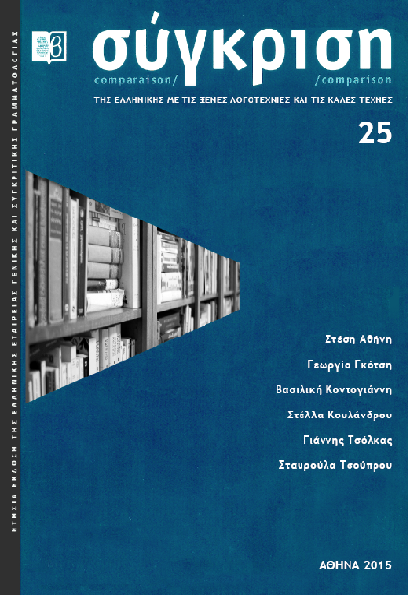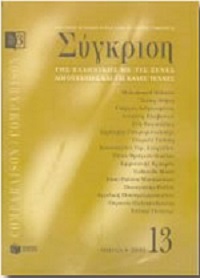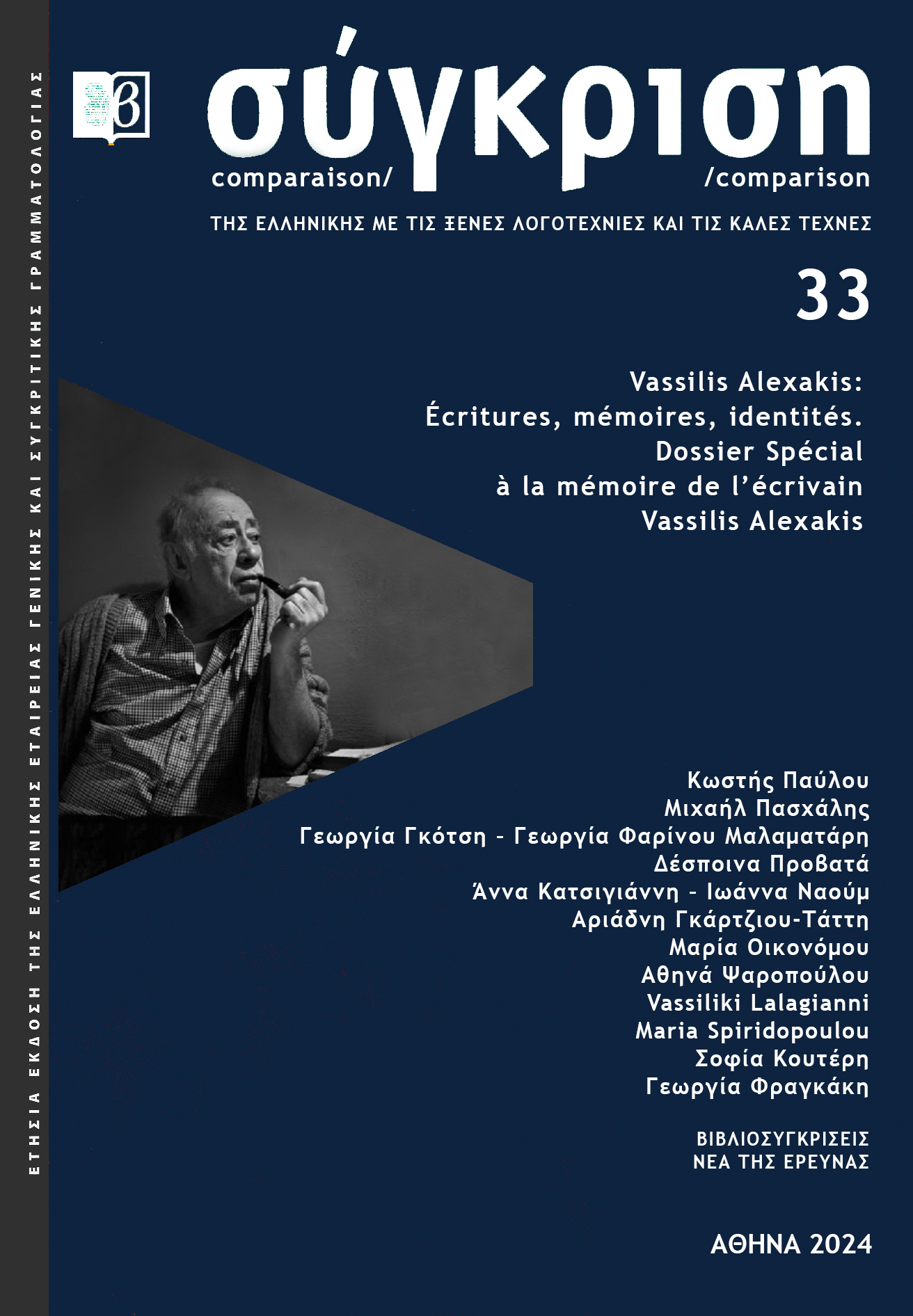Elizabeth Mayhew Edmonds: Greek prose fiction in English dress
Abstract
Elizabeth Mayhew Edmonds (1823-1907) played a significant role in the mediation of Modern Greek literature and culture in late nineteenth-century Britain, with her translations forming a vital aspect of her activity as a cultural broker. Focusing on Edmond’s transmission of late nineteenth-century Greek prose fiction, the article discusses her translation practices in the contemporary contexts of the publishing domain and the marketplace as well as of her effort to acquire authority in the literary field. Albeit impressive for a woman who was an autodidact in Modern Greek, the narrow scope of Edmonds’ translations offered a limited image of the developments in Modern Greek fiction. Her correspondence with John Gennadius and Thomas Fisher Unwin sheds light on her sense of superiority regarding male Greek authors such as Drosines and Xenopoulos, whose texts she rendered into English. Against this background, the article seeks to explain her translating choices and examines how a self-conscious translator such as Edmonds tried to shape the reception of Greek fiction in Victorian England by portraying it in terms of an ethnographic study of cultural survivals. Finally, through a parallel reading of the original texts and her somewhat mundane renderings, the article seeks to illuminate her translating craft: although worthy for their contribution to the promotion of Modern Greek literature in Great Britain, Edmond’s translations suffered from her inability to recreate the density of the original texts.
Article Details
- How to Cite
-
Γκότση Γ. (2016). Elizabeth Mayhew Edmonds: Greek prose fiction in English dress. Comparison, 25, 23–60. https://doi.org/10.12681/comparison.9064
- Issue
- Vol. 25 (2015)
- Section
- Articles

This work is licensed under a Creative Commons Attribution-NonCommercial-ShareAlike 4.0 International License.
Authors who publish with this journal agree to the following terms:
- Authors retain copyright and grant the journal right of first publication with the work simultaneously licensed under a Creative Commons Attribution Non-Commercial License that allows others to share the work with an acknowledgement of the work's authorship and initial publication in this journal.
- Authors are able to enter into separate, additional contractual arrangements for the non-exclusive distribution of the journal's published version of the work (e.g. post it to an institutional repository or publish it in a book), with an acknowledgement of its initial publication in this journal.
- Authors are permitted and encouraged to post their work online (preferably in institutional repositories or on their website) prior to and during the submission process, as it can lead to productive exchanges, as well as earlier and greater citation of published work (See The Effect of Open Access).





